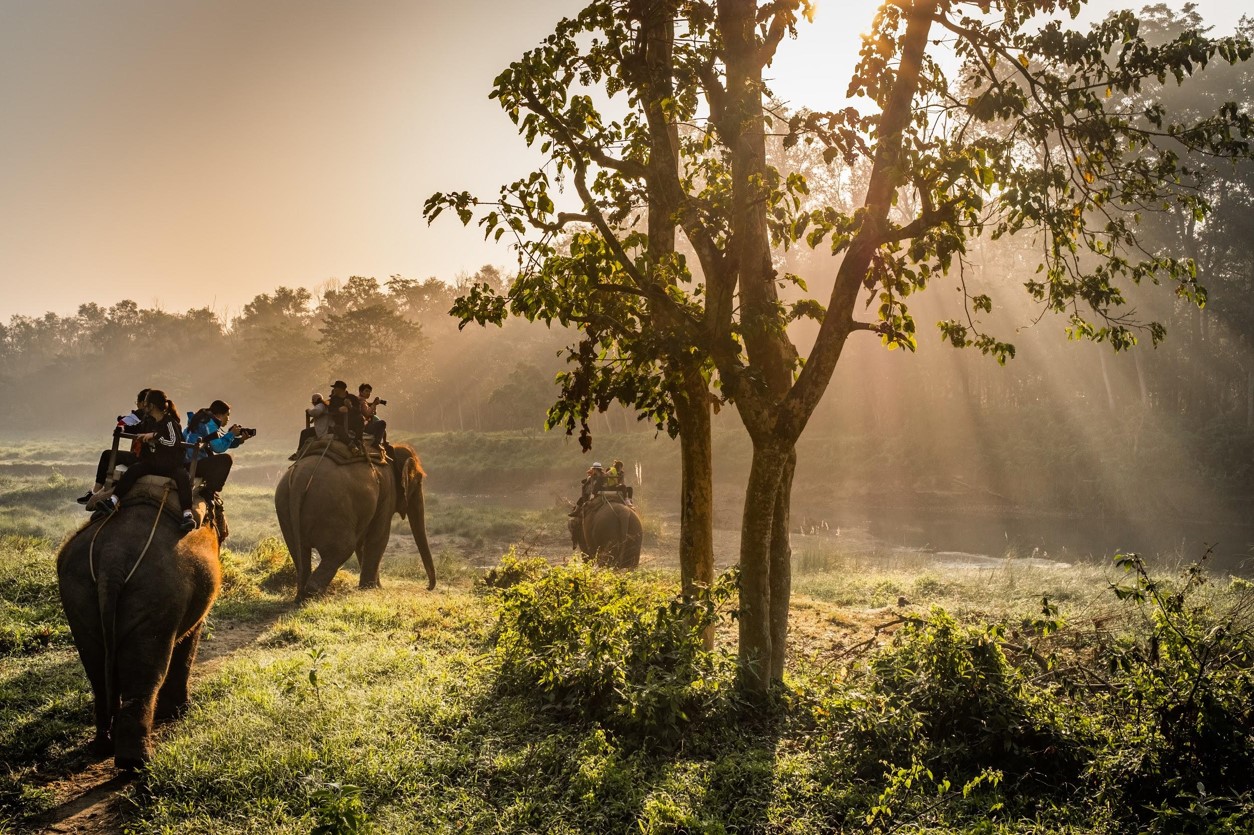
Photo credit: Jason Houston
Conservation in Practice with USAID
Using the Conservation Standards to look at Conservation Enterprises
Honorable Mention in the 2018 Case Study Competition
by USAID
The USAID Office of Forestry and Biodiversity, with the help of the Measuring Impact project, established a learning group to gather stakeholders worldwide to exchange insights on the effectiveness of conservation enterprises (businesses designed to generate economic and social benefits that increase self-reliance and motivate communities to reduce threats to biodiversity).
Using the Conservation Standards, the learning group articulated expected results (along a theory of change) and key questions to assess the effectiveness of supporting conservation enterprises and to guide adaptive management. Through facilitated meetings, webinars, and a dedicated website, the Conservation Enterprises Learning Group collaborates and shares knowledge products to improve the design and implementation of conservation programs. Conducting both a synthesis and retrospective, the group has gathered lessons and has seen the valuable impact of cross-mission learning and evidence-based approaches in shaping conservation enterprise strategies.
“There are many interventions that Missions are doing around the world that are similar – why not capture those general approaches in a very common theory of change and then allow Missions to take a look at that and adapt it for their own use and tweak it in a way where we can both implement them in our country and then contribute to the learning that we can do at a cross-Mission level?” – Heather D’Agnes, Former Deputy Director, Environment Office, USAID Indonesia
The team found that examining not only “if,” but also “why” desired results are or are not achieved has led to important insights on common key assumptions in implementing conservation enterprises. The team has synthesized lessons in a readily usable way for others wishing to design and implement conservation enterprises.
Learn more about this work by downloading corresponding documents here.
More about Conservation Enterprises

Conservation enterprises are crucial for both communities and biodiversity. They provide sustainable livelihood opportunities while supporting conservation efforts through activities like ecotourism, sustainable agriculture, and handicraft production. These enterprises contribute to economic development by attracting investments, creating jobs, and preserving critical habitats and endangered species. Community empowerment and increased support for conservation initiatives are additional benefits. Conservation enterprises also enhance resilience by diversifying income streams and promoting awareness about biodiversity’s value. Moreover, they foster partnerships and collaborations, ultimately creating a win-win situation that benefits communities economically and socially while preserving biodiversity and protecting ecosystems for the future.
Download CS
The Conservation Standards is the product of inputs, field tests, and discussions among members of the Conservation Measures Partnership (CMP), which has final editorial authority over the Conservation Standards. Substantial input was also provided by members of the Conservation Coaches Network (CCNet) and other CMP partners.
Photo Credit: Felix Cybulla
Support CS
The biodiversity conservation community is tackling large, complex, and urgent environmental problems where the stakes are high. However, we don’t have a fully functional system to assess the effectiveness of our actions. Without more rigorous measurement of effectiveness and disciplined recording of our efforts, we cannot know or demonstrate that we are achieving desired results.
Photo Credit: Felix Cybulla
Our Collaborators
Every organization, agency, project, and individual has its own preferred set of terms. There is no right answer – the most important thing is that the members of your project team and the people with whom you work have a clear and common understanding of whatever terms you choose to use.
Photo Credit: Chris Scarffe
Contact Us
To inquire about supporting Conservation Standards (CS) or for general inquiries, please contact us at CMPinfo@ConservationMeasures.org
Photo Credit: Nature Conservancy of Canada
